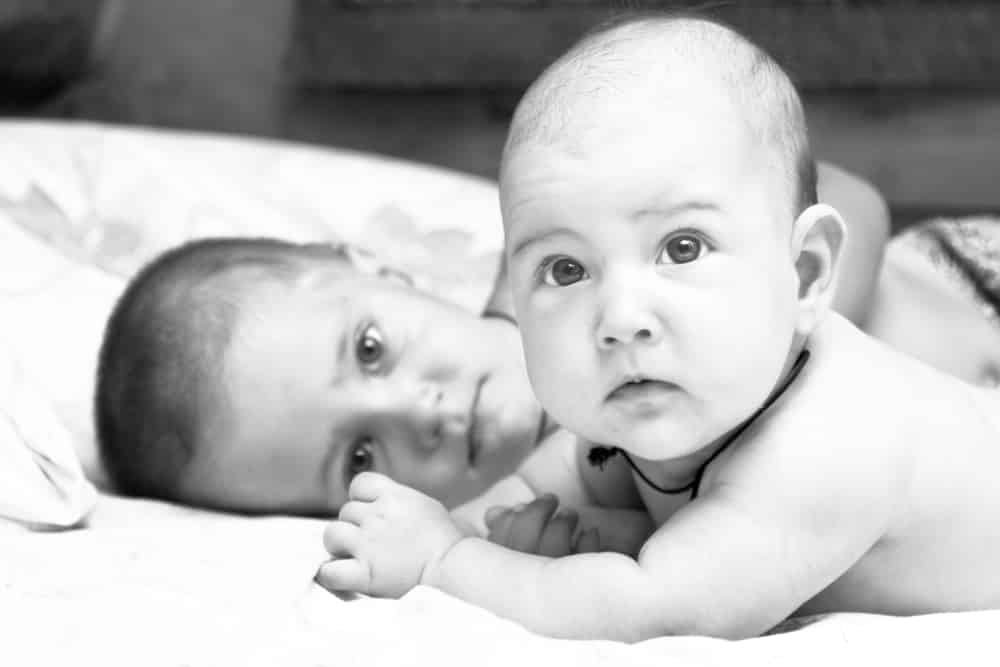Introducing your older child to the new baby is a task that parents ponder with mixed emotions. On the one hand, it could be a really lovely event. There’s this perfect new tiny being that’s well, pretty miraculous. Surely your baby’s older sibling will experience the wonder and the miracle of new life. That should be a beautiful thing to witness. Not to mention that you are introducing lifelong siblings for the first time.
Now that is definitely cool.
On the other hand, one “baby” is effectively displaced by the new arrival. The older sibling loses his or her place of pride and in fact, loses his moorings within the family altogether. Suddenly, the role the older child has always played has disappeared and the sibling is cast into a different role with no script provided for reference. The experience is a little like the unexpected ripping of a bandage off a wound.
It’s sudden. It stings. It comes out of nowhere.
You’d Explained Things
It comes out of nowhere, even though the child knew a baby was coming. He’d felt your tummy. You’d explained things. The baby things had been set up weeks ago.
Yet, what you are told and what you experience are two very different things. Before, the new baby was a new baby only in theory. Now the new baby is REAL. And the repercussions are felt in a very personal manner by the older sibling.
There’s all this cooing and these dreamy stares directed at an infant-being that does nothing but sleep or scream. The older sibling draws a picture and the adults, occupied with the baby and the needs of the new mother may pat him on the head and say, “That’s nice, Steven,” and then turn to the baby saying, “Is widdle Wobbie unhappy? Does he need a diapy change?”
To the older sibling, it’s like all the members of his family, including his grandparents, have turned into aliens, complete with their own private language, which he, the older child, does not understand.
That would all be quite bad enough, but even before the baby came home, there were these awful rifts in the daily structure and fabric of the older sibling’s life. Mother suddenly disappeared. She was gone for days on end. There were sitters and relatives watching him and everything was unfamiliar.
THEY didn’t know how to make his peanut butter and jelly sandwich the way he liked it, with the crusts cut-off and more peanut butter than jelly. The sandwiches THEY made, felt funny in his mouth.
The bedtime rituals were different, too. Grandma didn’t know that he needs his special song or he sees monsters at night. Everything was just wrong. He felt this big lump in his throat, all the time.
Then, Mother finally comes home and it’s still all wrong. She’s back from the hospital, it is true, but she’s sleeping or taking care of the baby. It’s like she’s not HIS mother.
Sure, she brought him a gift. Pretended to be glad to see him. Gave him a hug. But it feels like an act.
He thinks, “I want MY mother back. And if that means the baby has to go, well then, the baby has to go. That’s all there is to it.”
Certainly seems logical. To him.
Two Big Secrets
Okay, so now that you’ve seen things from your child’s side, you should have a better handle on things. With all this in mind, here’s the big secret to introducing an older sibling to a new baby. Or rather, the TWO big secrets.
The first secret is that no matter how well you prepare your child, and of course, you should definitely prepare your child that a new baby is on the way, the older child will experience jealousy. This is completely unavoidable.
And normal.
In fact, if your child doesn’t seem jealous of the new arrival, it’s not a good sign. It means that either your child thinks the baby is simply a visitor and will soon go back to where it came from (!), or that your child is repressing his feelings.
The jealousy has to come out and the sooner, the better. It’s healthy. And that means it’s desirable. Because when a child displays his jealousy, you can help him deal with those feelings. But if he’s holding those feelings back, it’s pretty hard to get him over the necessary hump involved in accepting the presence of his new brother or sister.
So expect jealousy. Expect the sibling rivalry. This is the big secret the experts mostly don’t want you to know. They all talk about “preparing the older sibling” and this leaves the impression that if you’ve done things correctly, everything will be fine.
This just in: you can prepare your older child six ways to Sunday, and there will still be jealousy and uncomfortable feelings in relation to the new arrival.
 Wondering about the second secret? It’s this: Make your older child an important part of caring for the new baby. This does away with the older child’s feelings of being displaced and cast adrift within the family circle. By involving him in the child’s care, you provide him with the parameters of his new role. There’s no guess work.
Wondering about the second secret? It’s this: Make your older child an important part of caring for the new baby. This does away with the older child’s feelings of being displaced and cast adrift within the family circle. By involving him in the child’s care, you provide him with the parameters of his new role. There’s no guess work.
Furthermore, by praising him as he helps you care for the new baby, you also rebuild his self-esteem, which at this point tends to be rather dented, because you’ve brought home this new baby to “replace” him.
That’s how it feels to the older child, remember. He feels you got a new baby because he’s no longer fulfilling his role successfully as the family baby. Enlisting his help makes him feel less like he’s been replaced, and more like he’s graduated. And if you praise him for his help, he feels like he’s graduated with honors!
Sure you can do all that stuff the experts tell you to do: buy him a gift to give him on the day you bring the baby home. Help him express his jealousy by encouraging him to talk about it or have him draw a picture of how he feels. But the bottom line is that this is going to be rough on him and involving him in the new baby’s care is the best way to help him transition into his new role.
It’s not going to be easy, but then, you weren’t expecting easy, now were you? It makes infinitely more sense to shoot for realistic, which is what these two simple secrets are all about: keeping it real.
For sure you’ll have good days and bad days, but if you keep these two secrets in mind, you’ll soon get back on track. It’s an adjustment for all involved. And it will get better, for sure.

